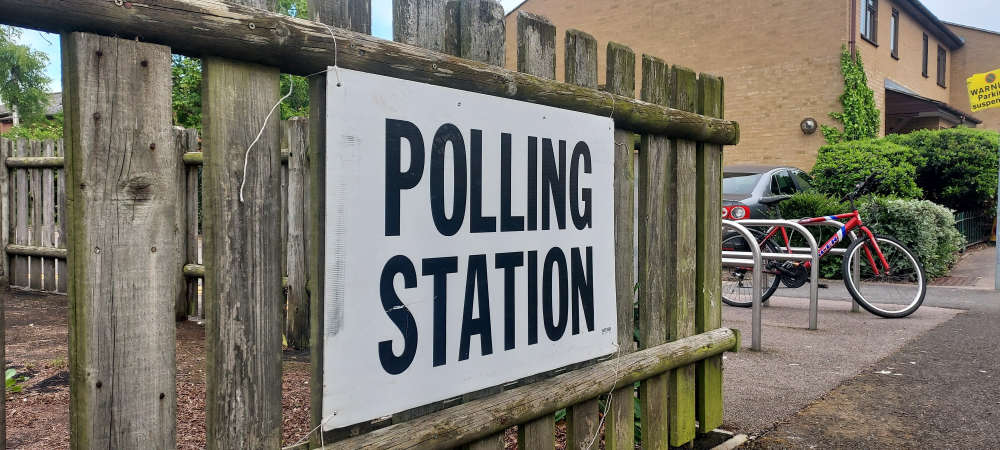
New proposals for the future of county council-run residential care and day services for older people are due to be considered by Derbyshire County Council following a public consultation.
The proposals for a new model of care – outlined in a report due to be discussed by the council’s Cabinet on Thursday 14th November – support the authority's intention to create a sustainable service focusing on:
- Specialist services for people with dementia and their carers, offering long-term residential care and flexible day and overnight breaks to support carers.
- Greater integration with health partners to provide short-term reablement and assessment services to support timely discharge from hospital, prevent unplanned hospital admissions and reduce the risk of readmission, thereby helping people stay at home for as long as they can.
- Moving from mixed model care homes, where both long-term and short-term residents are cared for, to single model care homes, focusing on either providing support to people with dementia and their carers or on providing short-term reablement and assessment care, creating a more effective and efficient service.
Cabinet is due to consider the report which outlines the approach following feedback given during the consultation, including from NHS partners.
Members will be told of the continuing backdrop of financial pressures faced by the authority which is one of the largest local authority providers of residential care in the country. Budget pressures include an increased demand for adult and children’s social care and higher prices for fuel, energy and materials.
They will also hear of the increasing need for specialist services for the growing number of older people in Derbyshire with dementia and their carers.
More than 1,700 people responded to the public consultation with two options for the future delivery of council-run residential care homes and day opportunities for older people.
Derbyshire County Council’s cabinet member for adult care Councillor Natalie Hoy said: "All the research shows that people want to remain in their own homes for as long as possible which has led to a decline in demand for traditional residential care.
“There’s also a growing number of people living with dementia, often supported by family carers or friends who work hard to look after them.
“Carers have told us they need consistent and regular support so we need to focus our resources on having the right options to support them. This includes long-term specialist dementia care coupled with respite day and night breaks.
“By refocusing our services, to create wraparound care for those with dementia and their carers, we can help even more Derbyshire residents live the life they want, in their communities, in familiar places among family and friends.”
Cabinet will be told that often people stay in hospital longer than is ideal and that the new model of care would involve closer integration with health partners to create a more effective and efficient assessment and rehabilitation service, subject to Cabinet agreeing to further public consultation.
Currently, the council has 78 community support beds – beds jointly operated with health – in five county council-run care homes that also have long-term residents.
Community support beds (CSB) support discharge from hospital by giving people a short period of rehabilitation before returning home. They are also used to help avoid hospital admission, supporting Derbyshire residents to recover, rehabilitate and return home.
As part of the service redesign, Cabinet will be asked to agree to consult on proposals that could give the council the option to move to a single model of care offering community support beds only in some settings, to help to improve flow through the health and care system and support people to stay at home. Other settings would be dedicated exclusively to specialist long-term residential, overnight respite care and day opportunities for people with dementia.
Councillor Hoy added: “Supporting the health and care system through closer working with health partners is vital if we’re to help even more people remain at home. Community support beds – usually known as hospital discharge beds - are a vital part of ensuring people don’t stay in hospital longer than they need to or are admitted when a short period of rest and rehabilitation in a community support bed would help them to stay at home for longer.
“There are also benefits to single-model care services, both in terms of staffing and increased effectiveness. By creating a new model of in-house care we can create a sustainable service helping people who need us most.”
The council is proposing to cease to operate and offer for sale Briar Close in Borrowash, Castle Court in Swadlincote, The Grange in Eckington, Lacemaker Court in Long Eaton, The Leys in Ashbourne, New Bassett House in Shirebrook, Rowthorne in Swanwick and Thomas Colledge in Bolsover.
To support the flow through the care system and help more people to live at home for longer, it is proposed that Bennerley in Cotmanhay would no longer operate as a residential care home and would be repurposed to be used exclusively for community support beds for short-term reablement and assessment.
Three day centres in North Derbyshire would remain open: Eccles Fold, Shirevale and Hasland.
Of the remaining residential care homes, the council is proposing to further publicly consult on proposed changes that, if implemented, would enable a move towards a single operating model of care.
The two options within the proposed consultation outline the following alternative options for the future use of the remaining residential care homes.
Under Option 1, four homes would operate as specialist dementia care homes - Florence Shipley in Heanor, Meadow View in Matlock, Oaklands in Swadlincote and Whitestones in the High Peak- with all except Whitestones having an integrated day centre.
Under Option 2, two homes would operate as specialist dementia care homes – Florence Shipley and Whitestones – with Meadow View and Oaklands adopting a mixed care model.
Under both options, Ada Belfield in Belper, Staveley and Thomas Fields in Buxton would cease to operate long-term residential and overnight respite care, with Staveley and Thomas Fields being potentially repurposed, alongside Bennerley in Cotmanhay, for hospital discharge beds (CSB) only, to support the health and care system.
Another consultation is proposed around closer integration with health partners to focus on reablement to help people remain independent at home for as long as they can. Working in a more joined-up way between health and social care would provide more effective and efficient support for people in Derbyshire, the report states.
A copy of the Cabinet report can be found on the county council’s website.

 Retiring Deputy Leader wants Derbyshire Council to deliver with dignity whoever is at helm after elections
Retiring Deputy Leader wants Derbyshire Council to deliver with dignity whoever is at helm after elections
 Councillor claims Derbyshire council has to answer for potholes despite ‘mammoth task’
Councillor claims Derbyshire council has to answer for potholes despite ‘mammoth task’
 Pictures of stolen jewellery released following burglary at Sandiacre home
Pictures of stolen jewellery released following burglary at Sandiacre home
 Standing against stalking
Standing against stalking




